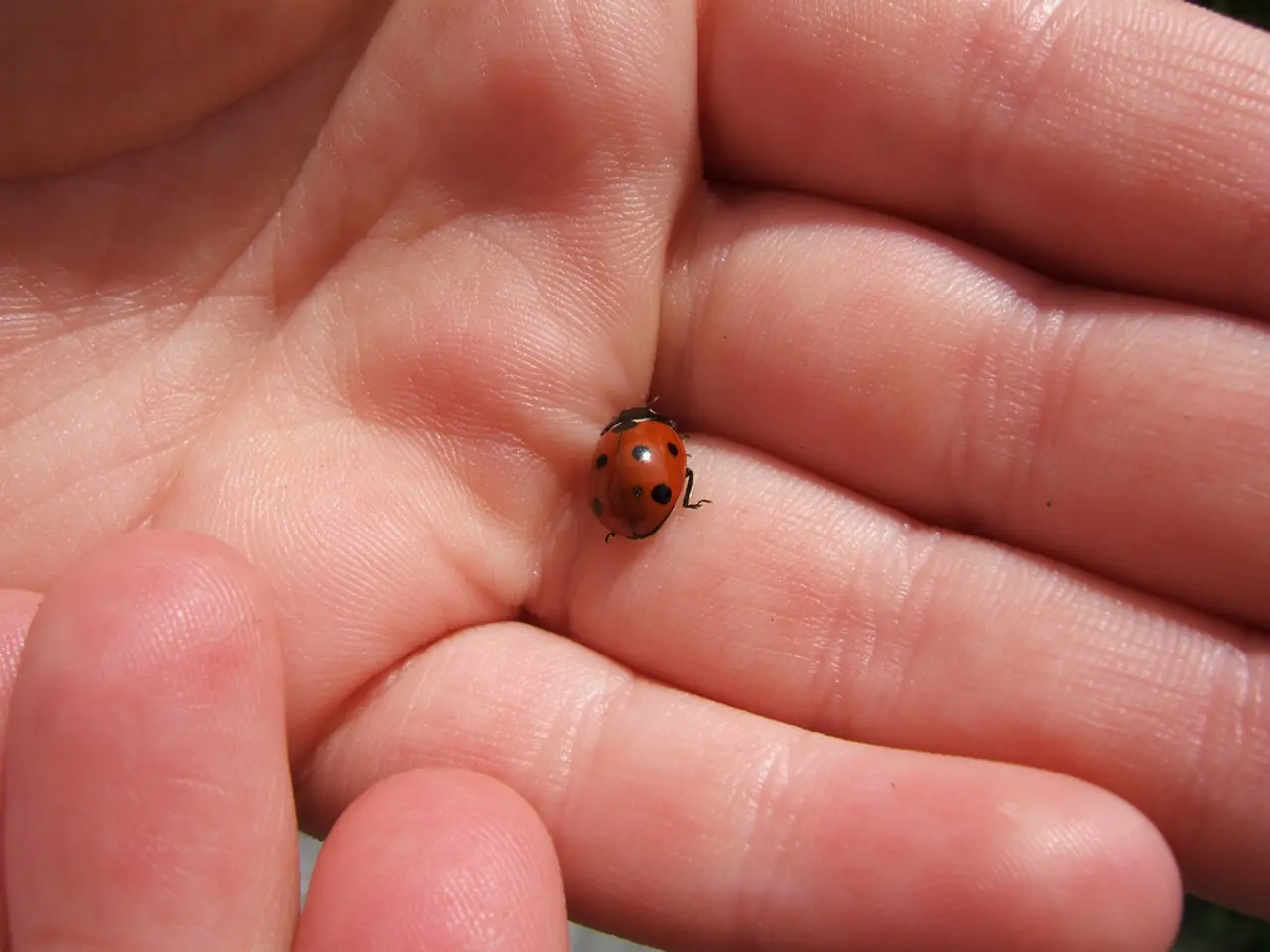Woman with Dementia Unable to Identify Own Hands
In the journey of dementia, a common symptom that may arise is the inability for individuals to recognize their own hands. This phenomenon, while challenging, is a normal developmental occurrence within the context of the disease.
In the late stages of Alzheimer's, severe cognitive decline affects brain areas responsible for self-awareness and visual-spatial processing, leading to this symptom. The person may lose awareness of their surroundings and themselves, leading to difficulty recognizing family, their environment, and parts of their body, including their own hands [1][4].
This disconnect between a person's mind and body can cause confusion and distress. In such cases, providing gentle reassurance can help support and comfort the individual. Holding hands with your loved one can provide a sense of grounding and security [2].
Dementia can sometimes cause regression in the affected individual, leading to difficulty in recognizing body parts. In these situations, sensory activities such as soft blankets, hand massages, or holding their hands can help individuals reconnect with their bodies [5].
Maintaining a consistent routine and familiar surroundings can be reassuring for individuals with dementia. Avoiding situations or objects that may exacerbate confusion or discomfort can help manage symptoms [3]. Minimizing distractions and creating a calm and soothing environment can help reduce anxiety and confusion [6].
Consulting with healthcare professionals and dementia experts can offer valuable insights and strategies for providing care. Connecting with support groups or online communities for caregivers can provide emotional support and valuable guidance [7]. Understanding and compassion can make the journey of dementia less daunting for both the person experiencing it and their caregivers [8].
Witnessing a loved one's struggle with recognizing their own hands can be heart-wrenching for caregivers. Sharing personal experiences and insights in the comments section can provide valuable guidance to others who are navigating this difficult journey [9].
Sources:
[1] Alzheimer's Society. (2021). Symptoms of dementia. Retrieved from https://www.alzheimers.org.uk/about-dementia/symptoms-and-diagnosis
[2] Alzheimer's Society. (2021). Communication. Retrieved from https://www.alzheimers.org.uk/about-dementia/symptoms-and-diagnosis/communication
[3] Alzheimer's Society. (2021). Managing behaviour that challenges. Retrieved from https://www.alzheimers.org.uk/about-dementia/symptoms-and-diagnosis/behaviour-that-challenges
[4] Mayo Clinic. (2021). Dementia. Retrieved from https://www.mayoclinic.org/diseases-conditions/dementia/symptoms-causes/syc-20351518
[5] Alzheimer's Society. (2021). Sensory activities. Retrieved from https://www.alzheimers.org.uk/about-dementia/symptoms-and-diagnosis/sensory-activities
[6] Alzheimer's Society. (2021). Living with dementia. Retrieved from https://www.alzheimers.org.uk/about-dementia/living-with-dementia
[7] Alzheimer's Society. (2021). Support for you. Retrieved from https://www.alzheimers.org.uk/get-support/support-for-you
[8] Alzheimer's Society. (2021). Understanding dementia. Retrieved from https://www.alzheimers.org.uk/about-dementia/what-is-dementia
[9] Alzheimer's Society. (2021). Sharing your story. Retrieved from https://www.alzheimers.org.uk/get-support/share-your-story
- To help individuals with dementia recognize their body parts, sensory activities such as soft blankets, hand massages, or holding their hands can be beneficial.
- Mental health and well-being, including emotional support, can be crucial for caregivers as they support loved ones dealing with dementia-related challenges, such as not recognizing their own hands.
- Therapies and treatments, in addition to caregiver support, can play a significant role in managing symptoms associated with dementia, including cognitive decline and self-awareness issues.
- In aging populations, women and parenting adults may find themselves taking on caregiver roles for loved ones with dementia, and understanding the available health-and-wellness resources can be beneficial for their caregiving journey.
- Science continues to evolve our understanding of dementia, bringing to light various aspects of the disease, such as the nervous system's role in recognizing one's own body parts, and offering promising avenues for treatment and caregiver support.




